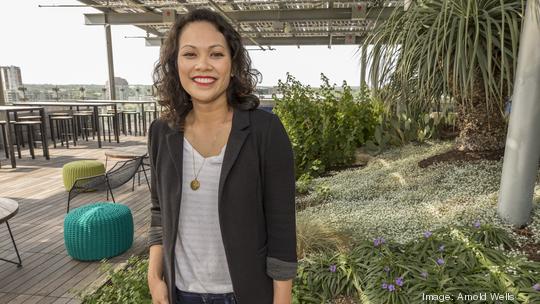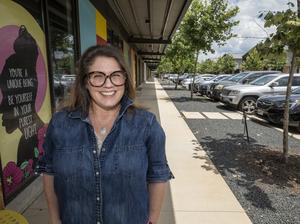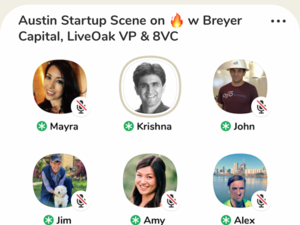
Some of the most important lessons in Marissa Limsiaco's life came when she was serving in the Army in Iraq, leading more than 100 soldiers at a critical fueling station.
"From a leadership development perspective, the hardest thing was learning to build up the team when tragedy happens," she said. "That’s something you can’t really practice until it happens. When we lost people there, continually motivating people was really tough. A significant component of leadership, of working within a big organization and dealing with politics, is that things are not always black and white. West Point was very black and white. I didn’t realize until I got out that not everything is perfect. There’s a lot of gray in the world, even in the Army."
Those lessons have been hugely helpful in her entrepreneurial career, including now as co-founder and president at Otso Inc., a Texas-based startup applying technology to real estate transactions. Otso eliminates cash deposits for commercial real estate leases and replaces them with double-A credit guarantees, freeing up cash flow for tenants and reassuring landlords.
Limsiaco, Josh Feinberg and Frank Rogers co-founded Otso in 2019 as a subsidiary of Tenavox Corp., which Limsiaco and Feinberg started in 2017 as an information portal for commercial real estate. As of October, Otso consisted of just the three co-founders. At the time, Limsiaco told Austin Business Journal she expected to generate about $200,000 in revenue in 2020.
And in May, the company became one of eight startups selected to participate in the 2021 REACH Commercial Scale-Up Program, created by Second Century Ventures, the investment arm of the National Association of Realtors. The program “helps technology companies launch into the real estate vertical and its adjacent markets,” according to an announcement.
Limsiaco — a graduate of the U.S. Military Academy at West Point, where she played tennis as the team’s No. 1 seed — recently spoke to Austin Business Journal about how she has applied those leadership lessons in her life, be it at work or elsewhere.
What is one of the lessons you learned at West Point that you still take with you?
The “a-ha” moment came during my sophomore year when I learned about leadership, and what it means to have teammates. I played as our No. 1 seed as a sophomore. I didn’t understand, as a 19-year-old, that people look up to you as the top player. I was just caring about myself and showing up late to practice. The coach and the team captain told me, “You have to step it up. Every step you take, people are emulating you. All the players look up to you, so you have a responsibility [to set the tone].” After that, I said to myself, ‘OK, I have to get my s*** together.'
How did you make the transition to the civilian world after you left the Army?
Like a lot of veterans, I wondered 'What in the world am I going to do after being told what to do for so many years?' It was overwhelming. I chose to go back to school, business school, full-time, for two years. I had fun, but I was testing the waters, learning about corporations and what types of jobs are out there. My cousin was starting a business and I asked to help him, basically. It was super cool watching an idea come to life, building teams and helping people.
When did you launch your first business?
It was my second year in grad school when we launched [Phoundry Development Holdings LLC], which provided overseas developers to startups. I was going to the Philippines a lot and visiting my grandfather. I met a lot of developers there. I didn’t know how to develop software, but I learned how to manage it. I don’t think I understood what I wanted. I went to work for different corporations for a few years. When we started Tenavox [in 2017], I realized, this is what I love to do. Back then, I was learning how to bring products and ideas to life through software. I learned that I didn’t want a service company. I was more into developing my own products.
What would you say makes a good leader?
The top three things are No. 1, being able to effectively communicate your vision. The second, which I learned at West Point, is leading by example. If you’re too cool for school, no one’s going to follow you. And No. 3, making sure you mentor younger and new leaders. But, at the end of the day, it’s just caring about people. You have to understand what motivates them and what’s getting to them.
What did you do, as the leader, when you lost someone in Iraq?
It goes back to leadership by example. In those situations, you have to put your emotions to the side and realize, the show has to go on. For our survival — it was a 24-hour operation there — we couldn’t stop. We paid our respects, held a memorial and then we kicked it into gear. Putting my emotions aside maybe is not the healthiest thing to do. But leading by example, with strength, but compassion, and giving them assurances that we’re going to make it, we became so much closer.







